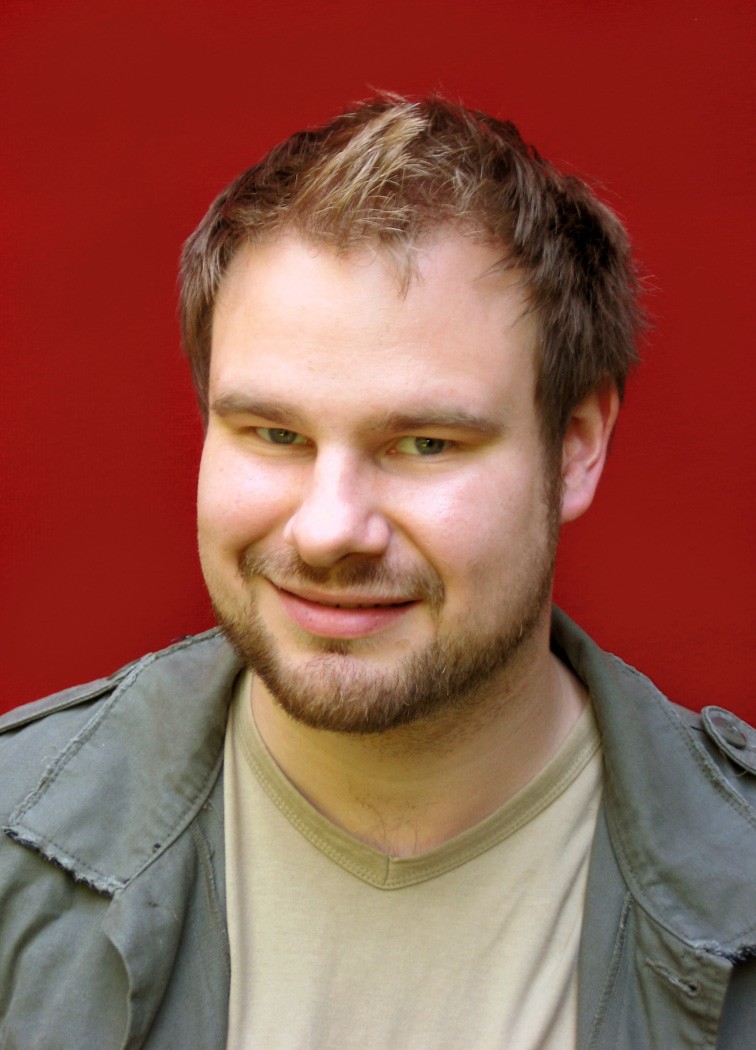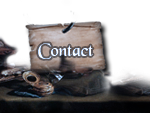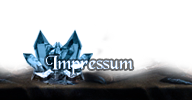31.03.2013 12:00
[Interviews (english)]
Russian fans interview Ex-Piranha Kai Rosenkranz, part 2
Games as hobby
What games have you played lately and which ones did you like most? Mostly RPGs? What do you currently play?
Unfortunately, I hardly have time to play games. When I’m home, the family comes first. So I play “Toy Blocks 2.0 - Constant Reconstruction” and “Lego Tower Defense” (defend Lego tower against destructive energy of daughter).
The last game I played was “Walking Dead” and I thought it was fantastic. Courageous, clever, captivating. I also like the episodic model, I wish more games had that.
I avoid RPGs however, since you usually need to invest a lot of time and I don’t want to stop after the first third of the game. Short and fun games are more for me nowadays. Here’s a little secret, but it stays between us, okay? Even though the focus group are women, I currently have a lot of fun to play teeming picture adventures with my wife. Especially the HOPA games (Hidden Object Puzzle Adventure) of the Polish developer Artifex Mundi (”Nightmare of the Deep”, “Abyss” etc.) offer an entertaining diversion and are nice to look at.
Are you interested in fan modifications? Or do you not care about the future of old PB games? If not, what do you think about projects like the G3 questmod, the content mod or the still developed Community Story Project?
The question if I do not care anymore about PB games is rather dramatically phrased, so I have to deny that. I am very grateful for every mod because it transforms short-lived flares on the night sky of gaming into a long-term, living universe. It is astonishing and touching how much effort and dedication the modders invest to tell their own stories in the PB worlds and further enhance the Gothic and Risen games.
A developer who has such a strong and active community can indeed consider himself lucky. Therefore, dear Piranhas, show a little more presence here!
When was the time you played Gothic? What emotions did you have during that? Or are you never pulled back to that masterpiece?
Honestly, I am not the greatest “plays again for nostalgic reasons” kind of guy. I like to breathe the nostalgia in the Gothic forums, fan films or when meeting fans at events. But when it comes to playing, I prefer to invest what little spare time I have into current games. So I can keep up with development at least a little.
Furthermore, the real fascination about old games is in our head. I think if I were to play Gothic 1 again today, the interface and dusty graphics would make my toes curl. As a gamer, you become ever more spoiled and playing Gothic 1 would be like doing the dishes yourself after years of having used a dishwasher. Hm. Maybe not the best analogy. Anyway, I want to keep the nice memories intact. *sigh* Mud, Ulumulu...
Current job, plan
How far are you with your project “articy:draft”? Are there already studios using it or planning to use it? Do you plan on perhaps using it do develop your own RPG in order do demonstrate all the possibilities it offers?
articy:draft is on the market since beginning of 2012 and is constantly enhanced and developed. In April, we will release version 2.0 and since recently, we’re available on Steam. Here is the link, if you’re interested: http://store.steampowered.com/app/230780/
We are currently working on a new website on which we will then be able to present a few clients of ours. We are especially happy to have convinced a well-known US studio. Maybe you know of some large MMO with light sabers? *smile*
The tool fills a gap in the market since there were no specialised tools for game designers and writers before. Most of them still use Word and Excel. So articy:draft is welcomed rather euphorically in the business and we’re beginning to build our own community. But hey, don’t worry. You’re still the best!
Are you really satisfied that your new project has nothing to do with music?
We all voted for articy:draft on Steam. Your program is really innovative. But would it be possible to get a freeware version for non-commercial use? So that you only have to pay if and when you make money?
[answer]Thank you very much for your support.
Free of charge is not possible, unfortunately. Indie studios who want to work in the team with our multi-user version can get a sponsored server. And we generally find a solution even for small budgets. If the project is really non-commercial (like mods), we are open for talks and may agree on a marketing partnership where one hand washes the other. We do like to make our product as accessible as possible.
There’s a non-commercial version on Steam for only 99€. You can then upgrade to commercial use when the money starts coming in. We always say: “Make sure you can feed your family, and then help us feed our families.”
Is there a cheap way for a small indie team with little money to somehow use the articy-tool during development?
Cheap yes, free no. If you are interested in our indie prices, please contact our indie community partner under sales@nevigo.com.
Kai, I think the idea for articy has ripened in your head for several years. Were your experiences during the development of Gothic 3 and Risen influential? When did you decide to start your own development of that tool?
Good question. I think, I always like to get things done myself. As audio director of PB, I also was the supervisor of my own little one-man-team. The knowledge that good tools are important during games development is not new. Each of those little unnecessary steps that you have to make with suboptimal tools doesn’t take long in itself. But together, they quickly sum up to weeks or months. Hence, a good tool should improve productivity and make room for creativity.
It is also important to keep an overview. Especially with complex story structures, it is prone to failure if the story is just what happens when you press the big “simulate” button and all the AI scripts start racing against each other. Without a birds-eye view on the whole narrative it is virtually impossible to recognise where dramaturgic weaknesses or logical errors lie.
Many studios also are troubled by quickly outdated design documents (e.g. concept papers or value tables). When you make the step to the game engine and implement changes directly there “on the open heart”, the documents become obsolete fast. That leads to wrong decisions because no one has a clear overview of the data anymore. So the challenge is to keep game data and documentation synchronised and consistent.
These problems are addressed by articy:draft and naturally, a lot of my own experience and that of my colleagues went into it.
What do think is the greated danger for a young developer studio that has little experience regarding big projects and is working on its début project (like we at Alersteam with Exoplanet)? Where can we run into dangerous or life-threatening problems during development and how can we avoid them?
http://alersteam.com/blog/en/
http://alersteam.com/blog/en/
There are many, many traps unto which you can step, so the question is tricky. It also depends on the project and the team. But if I have to say something, I’d say:
Don’t get bogged down in details, concentrate on the important stuff! Plan a small version and make that work instead of tearing up too many construction sites at once. Identify the core aspects and complete those first. Undecorated and without gimmickry. Then evaluate if it’s really fun to play. I have seen many teams “developing around the bush”, starting with logos, cutscenes, secondary systems and a 1000 little construction sites, without being sure that the core idea really sparks. The one thing you cannot plan is the fun factor. Therefore, the most important gameplay elements should feel good and make fun before you start working on the façade and put on make-up.
Iterate quickly. Most projects use agile development. In the past, people tried to write an all-knowing over-bible in which everything was planned and covered and that you “just had to quickly transfer” into actual code. Today we know that it does not work that way. Formulate a short, concise vision and plan the overall size and the feasibility of the game. But don’t get too sophisticated with 500 pages of design documents. Plan only as far ahead as you can see. Develop small prototypes (“rapid prototyping”) and start playing. Then iterate on your test game. That means that you improve it step by step in small cycles. That way, you get a feeling of what works well and what has to be changed. If something does not work, don’t retreat back into an epic redesign phase but instead keep the iteration cycles short. Try to quickly get something playable again.
Understand and manage risks. Yes, you can write your own engine parallel to making the game itself. But that’s a risk. Yes, you can assemble the game from 100% completely new gameplay features. But that’s a risk. Yes, you can build a complex mega-story with thousands of decision points. But that’s a risk. If your project solely consists of risks, it is probably very innovative but also more likely to fail. I would try to find a balance between well plannable and risky aspects. If you do not fear the risk, you should at least try to manage it wisely. That means doing risk analyses and constantly checking how well a handle you have on the risks and if you can overcome them in the planned time. And have a plan B ready in case of emergency.
Hang in there. German poet Hermann Hesse wrote: “Each beginning has something magical”. There’s nothing more exciting than the time of visions, in which flowing ideas are put into a concept and made solid. But after that, there comes a process which can be streaked with failures, deep hits and disappointments. If you don’t have the right attitude, you quickly lose your motivation at this point. This is where people skills are needed. If you have a team lead, then he should try to keep the spirits high and motivate his colleagues. It is always sad to see promising projects fail because the team lacked endurance and broke apart. It’s alright if there is the occasional sparky quarrel. It is not about some false, super-imposed peace policy. It is about mutual respect, a view on the positive aspects and the ability to endure even if the going gets rough.
written by foobar





























